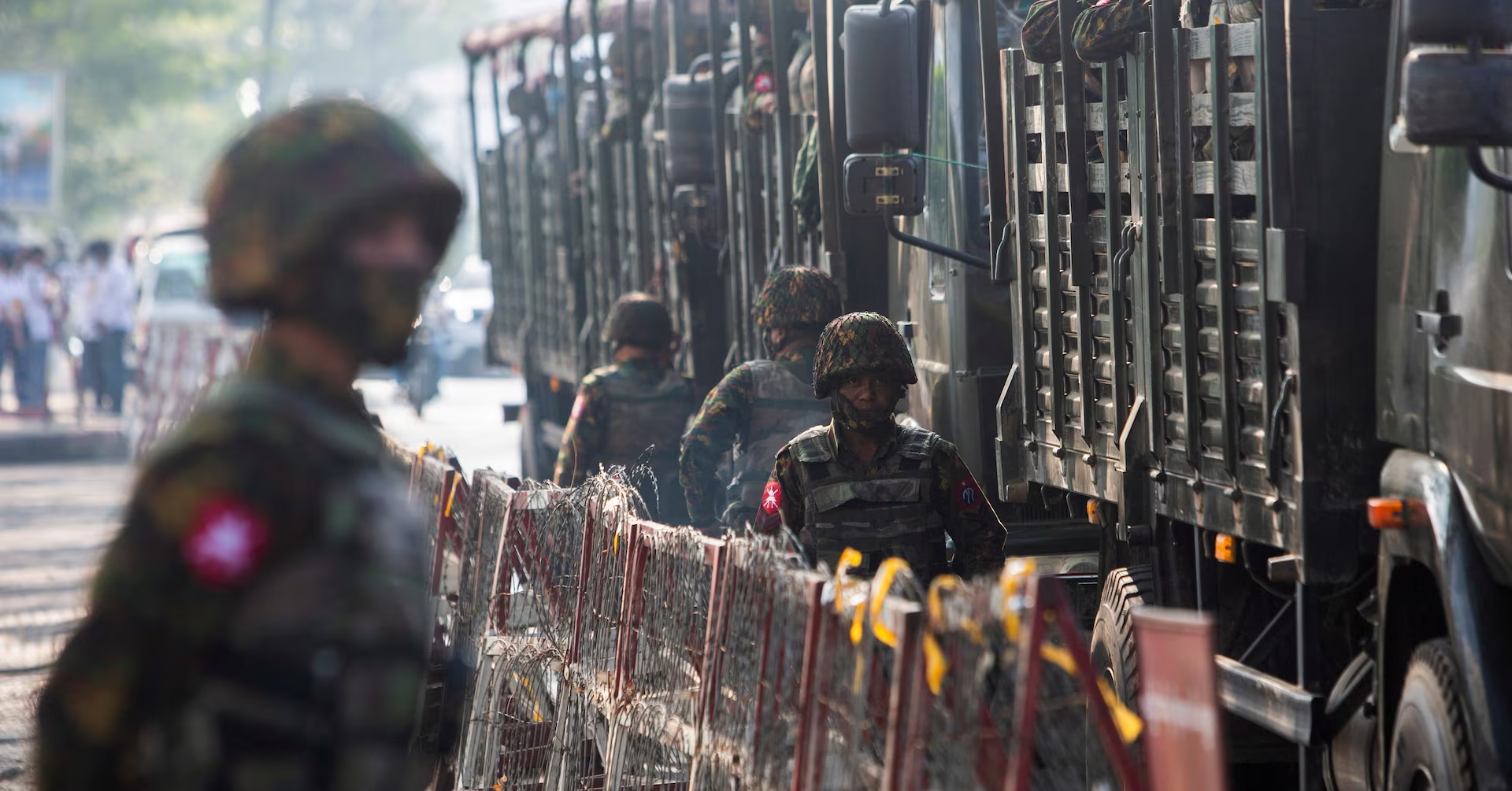Myanmar’s Military Prolongs Emergency Rule Amid Escalating Conflict

Department of Research, Strategic Studies and International Relations 04-02-2025
Amid a rapidly deteriorating security situation and increasing pressure from opposition forces, Myanmar’s military leadership has announced an extension of the country’s state of emergency for another six months. The decision, which comes at a crucial juncture, signals the military’s ongoing struggle to maintain control while facing growing resistance on multiple fronts.
The extension was officially declared during a meeting of the military-controlled National Defence and Security Council (NDSC) in Naypyidaw, the nation’s capital, on Friday. This announcement comes just one day before the fourth anniversary of the February 2021 military coup that plunged Myanmar into turmoil, ending a decade-long experiment with democracy.
A Final Extension Before Elections?
The military regime, led by Commander-in-Chief Min Aung Hlaing, justified the extension by citing the need for national stability before holding long-promised general elections. State-run broadcaster MRTV stated that “more tasks remain to ensure the success of a free and fair election,” emphasizing that peace and security are prerequisites for such an event.
According to a statement issued after the NDSC meeting, all members, including the commander-in-chief and the acting president, unanimously agreed to prolong emergency rule under Section 425 of the 2008 military-drafted constitution. This clause allows for emergency rule to be extended in six-month intervals under certain conditions.
While many analysts anticipate that this will be the final extension before elections are held, skepticism remains. The military previously promised to conduct elections by August 2023, yet repeated delays—largely attributed to the intensifying armed resistance—have prevented the polls from taking place.
Ethnic armed organizations, alongside newly formed anti-military militias known as the People’s Defense Forces (PDF), have intensified their attacks against military strongholds. The resistance has gained momentum, inflicting significant casualties on the regime’s forces, particularly in Myanmar’s northern and western regions.
The United States Institute of Peace has described the crisis as being of “unprecedented scale” for Myanmar’s military, which has historically dominated the country’s political landscape since the 1960s.
A Return to the 2008 Constitution?
Under Myanmar’s current legal framework, national elections must be held within six months of the state of emergency being lifted. If the military upholds its current timeline, emergency rule is set to expire on July 31, 2025, making an election in November a likely scenario—aligning with Myanmar’s traditional election season.
Richard Horsey, a senior adviser on Myanmar at the Crisis Group, noted that while the military may indeed push forward with elections, they are unlikely to be free or democratic. He emphasized that the end of emergency rule would mark a return to governance under the 2008 constitution, a document drafted by the military to preserve its dominant role in the political system.
Horsey also highlighted that both Myanmar’s military and its key ally, China, would likely welcome this return to constitutional rule, as it could introduce a degree of predictability to the country’s governance. “A return to the 2008 constitution is seen as hopefully leading to a little bit more stability and fewer arbitrary decisions by Min Aung Hlaing,” he remarked.





